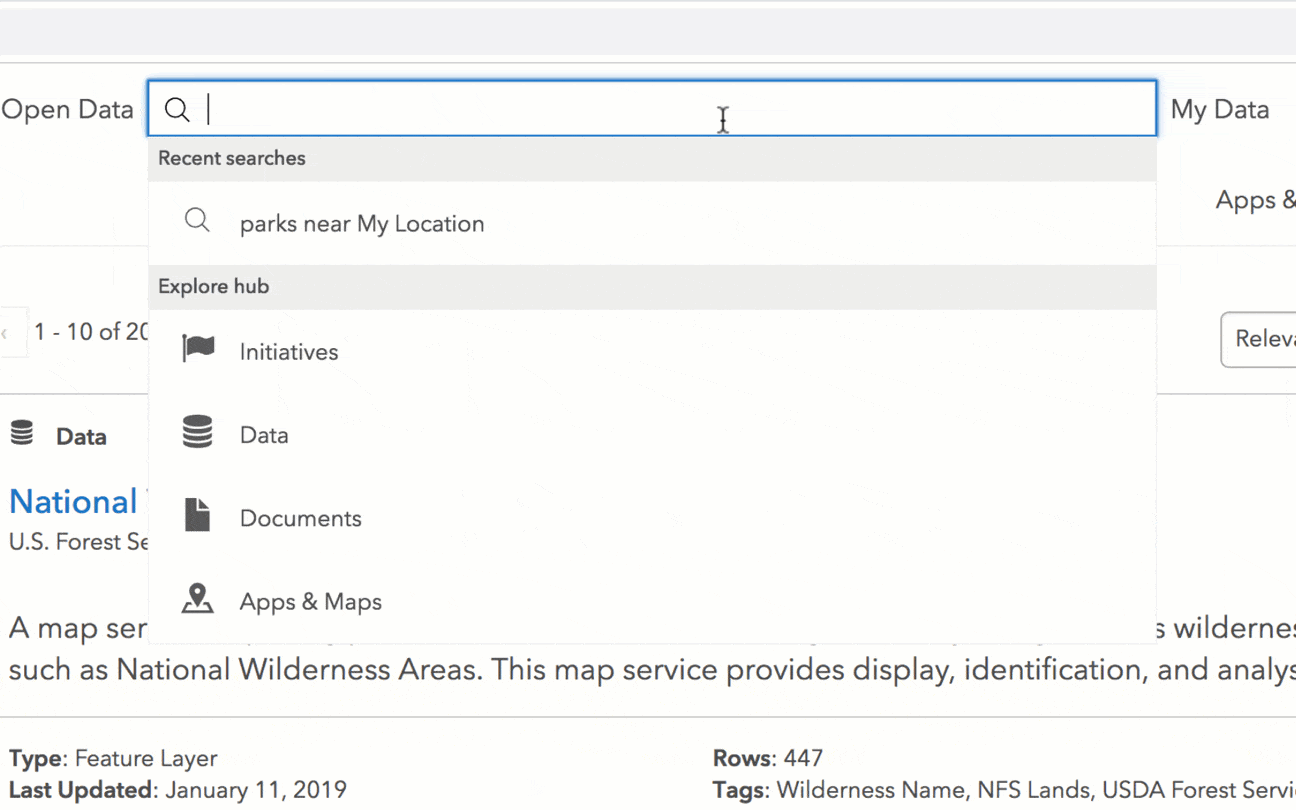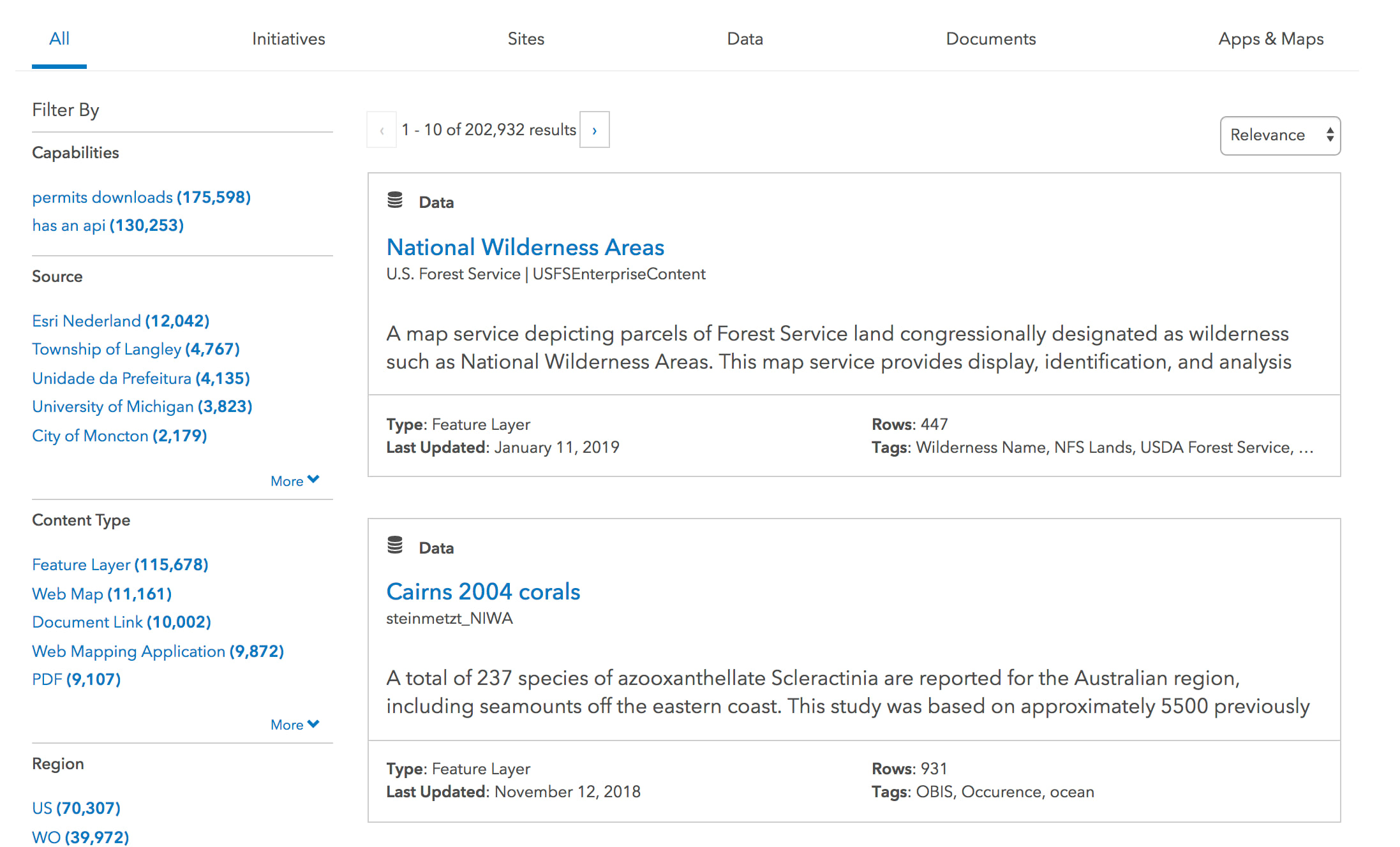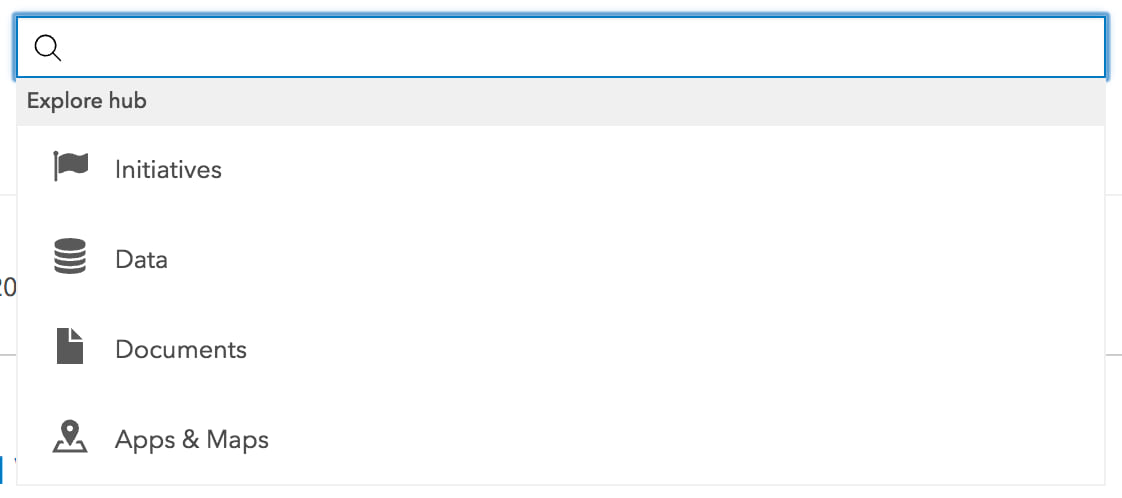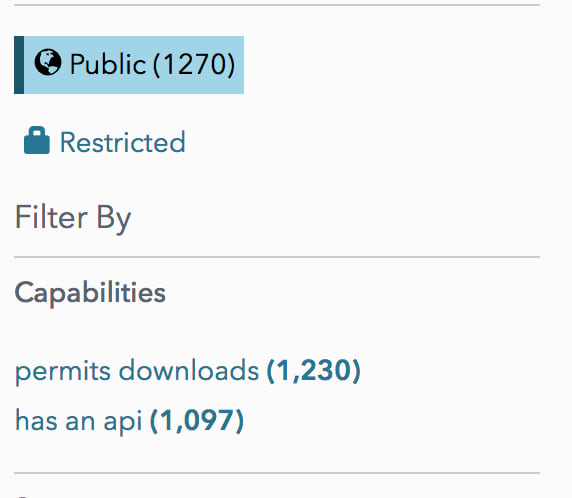A smarter search bar


- Sites- websites for sharing data and content.

More content types

Access private items

Don’t worry about new or updated content. We’ve got it covered.
Ready to check it out?
Try out search yourself by querying a search on our open data page. Or, add a search bar to your own site.
New to ArcGIS Hub? First, ensure that open data is enabled for your organization. Then, group together content that you want to share in an ArcGIS Online group that’s been enabled for open data. You’re ready to create your first site.
For more information on search collections and possible effects on your layout, check out this GeoNet post. As always, feel free to leave a comment or reach out to us with questions.
And don’t forget to stay up to date by following us on Twitter. and checking out our changelog for our release notes.
Tell us what you think
Have a minute? Take this brief survey to help us learn more about how we can connect organizations and their communities. We look forward to hearing from you.

Commenting is not enabled for this article.